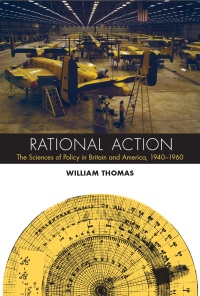Holiday & Introductory Course August 3, 2011
Posted by Will Thomas in Uncategorized.Tags: Adam Kuper, Amy Dahan, Andrew Warwick, Anthony Grafton, C. S. Lewis, Daniel Greenberg, Edward Appleton, Jack Morrell, James Secord, Jan Golinski, John Gascoigne, John Hedley Brooke, Martin Rudwick, Neil Morgan, Noel Coley, Peter Bowler, Peter Dear, Robert Olby
2 comments
I am going to be doing some traveling for the next couple of weeks, and so there are likely to be no new posts in that time. In other news, starting in October, I will be teaching a year-long introduction to the history of science course here at Imperial. I’ve included a tentative lecture schedule and reading list below the fold. This isn’t set in stone yet, so comments and suggestions are welcome.
Primer: Joseph Banks July 26, 2011
Posted by Will Thomas in EWP Primer.Tags: Antoine-Laurent de Jussieu, Carl Linnaeus, Comte de Buffon, Daniel Solander, Earl of Bute, H. C. Cameron, Harold Carter, Humphrey Sibthorp, Israel Lyons, J. H. Maiden, James Cook, John Gascoigne, John Sinclair, Joseph Banks, Patrick O'Brian, Thomas Jefferson
add a comment
Two decades ago Harold Carter, in his definitive biography of Joseph Banks (1988), and John Gascoigne, in Joseph Banks and the English Enlightenment (1994), could both suppose that Banks (1743-1820) was a neglected figure in the historiography of science. Following a surge of interest in natural history and the relationship between imperialism and the sciences, no such claim could now hold water — entire conferences are now dedicated to Banks and his milieu (.doc). This post is intended mainly for my own benefit, to fill out my side interest in the culture of improvement circa 1800, but also just to help me get a personal handle on what now must be considered de rigeuer knowledge for any competent historian of science
The task of briefly summarizing Banks’ place in history is complicated by the reach of his interests, while it is simplified by the fact that he has very little place within the history of published science. Banks was an institution builder, whose influence was derived from his ability to orchestrate the resources and interests of hereditary privilege and the state, as well as from his commitment to building and maintaining an intellectual community capable of supporting a new scale of work in natural history, estate improvement, and imperial development.
Neglected Connections between the Histories of Science and Economics, Pt. 2 March 9, 2011
Posted by Will Thomas in Uncategorized.Tags: Alfred Marshall, Andrew Warwick, Augustin Jean Fresnel, Bruno Latour, Carl Menger, Charles Babbage, Crosbie Smith, E. Roy Weintraub, Friedrich Hayek, George Airy, George Peacock, Gustav Schmoller, Jed Buchwald, John Gascoigne, John Herschel, John Maynard Keynes, Karl Marx, Karl Popper, Max Weber, Philip Mirowski
3 comments
Part 1 of this post argued that the historical relations between natural scientific and economic thought require additional attention. It suggested that in the Enlightenment period both were subsumed within the epistemology of philosophical systems-building and the generic argumentative structure of “economy”. Although David Hume’s theory of morals was not economics, per se, in a separate post I used his example to demonstrate how the argumentative construction of a social economy had to face similar intellectual problems as chemistry, botany, and (what was thought of as) physics.
Part 2 emphasizes the importance of logical or argumentative space in economic thought, as exemplified by — but by no means limited to — mathematical inquiry. I want to argue that economics continued to adhere to the argumentative strategy of system-building familiar from 18th-century natural and political philosophy. Meanwhile, though, most natural sciences took a separate path toward argumentative rigor applied to a tightly constrained space of argumentation, such as that defined by laboratory phenomena. Political economists were deeply influenced by the natural sciences’ newly enhanced commitment to rigor, but interpreted that commitment in novel ways within the relatively unconstrained argumentative space of political economy.

